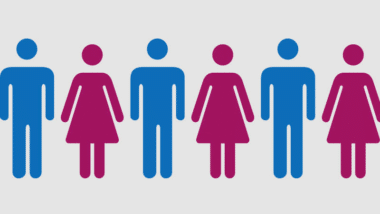The British Medical Association (BMA) has backed making changing legal sex much easier, including allowing people to legally declare themselves non-binary.
Under the current rules, anyone wishing to ‘change sex’ must be medically diagnosed with gender dysphoria. But the UK medical professionals body voted to lobby the Government to allow people to change their legal sex merely through a ‘sworn witness statement’.
The motion was passed despite strong dissent from some doctors at the BMA’s Annual Representative Meeting, with the tension described as “palpable” by the meeting’s chairwoman, Helena McKeown.
Non-binary
The BMA claims the current process for changing legal sex is “problematic” because “many individuals seeking to change their legally recognised gender do not meet the clinical requirements to be diagnosed with ‘gender dysphoria’”.
The motion highlighted the present requirement for someone to have lived as their preferred gender for a minimum of two years. Despite acknowledging that this could allow more time for careful consideration, the BMA backed immediate legal sex-changes by self-declaration.
The BMA also said gender recognition law should be expanded to apply to non-binary individuals – those who say they are neither male nor female.
‘Conflict’
Its motion included support for medical interventions for gender dysphoric children, but BMA member Dr Angela Dixon spoke out against this, telling the meeting that such interventions are “far from evidence-based”.
The GP said that puberty blockers and hormone treatment for children and young people with gender dysphoria could cause irreversible changes to the body, including infertility, adding that some who transition later regret it.
The BMA also declared its support for allowing transgender and non-binary people to use the toilets and changing facilities that match their chosen gender, but Dr Dixon said it should not “be supporting legal changes that conflict with women’s sex-based rights”.
She added: “If the BMA is saying that trans women should be treated as women on the basis of self-ID, it impinges on provisions to ensure that women can access healthcare safely and with dignity.”
Abandoning biology
The Christian Medical Fellowship’s Dr Julie Maxwell – a community paediatrician and former BMA member – expressed concerns over the move.
She told The Christian Institute: “I would certainly be concerned about the abandoning of the biological definitions of male and female and using non-binary as a medical definition.
“So much of medicine is based on biology and is based on differences between male and female that it raises all kinds of ethical and medical questions about treating various illnesses and how we should approach the way we treat patients.”
Self-declaration
She added that there are “lots of problems” with de-medicalising the process and allowing people to self-declare their legal sex.
“People who wish to change their gender are seeking medical treatment and surgical treatment to do that.
“If it’s not a medical condition, then why does it need medical and surgical treatment?”
Also see:
Equalities bodies face legal action over unlawful trans guidance


